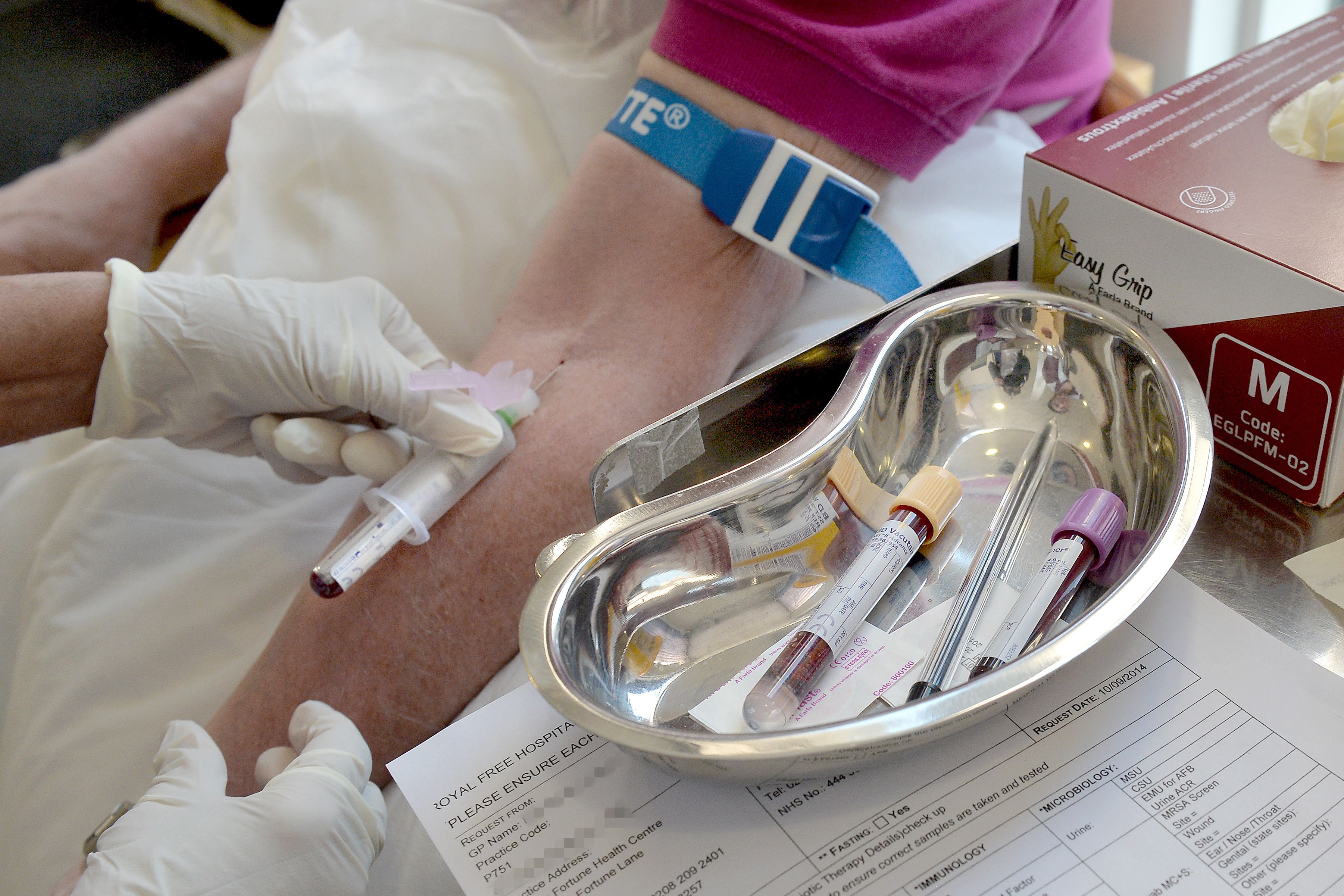Blood proteins predict risk of developing more than 60 diseases – study
Researchers have suggested the findings open up new possibilities for predicting a wide range of diseases.

Your support helps us to tell the story
From reproductive rights to climate change to Big Tech, The Independent is on the ground when the story is developing. Whether it's investigating the financials of Elon Musk's pro-Trump PAC or producing our latest documentary, 'The A Word', which shines a light on the American women fighting for reproductive rights, we know how important it is to parse out the facts from the messaging.
At such a critical moment in US history, we need reporters on the ground. Your donation allows us to keep sending journalists to speak to both sides of the story.
The Independent is trusted by Americans across the entire political spectrum. And unlike many other quality news outlets, we choose not to lock Americans out of our reporting and analysis with paywalls. We believe quality journalism should be available to everyone, paid for by those who can afford it.
Your support makes all the difference.Proteins in the blood could help predict the risk of developing more than 60 diseases, new research suggests.
Researchers say they are “extremely excited” about findings which indicate that thousands of proteins measured from a drop of blood could help to predict the onset of many different conditions.
This study, published in Nature Medicine, opens up new possibilities for predicting a wide range of diseases, including rare conditions which can take months and years to diagnose.
Lead author Professor Claudia Langenberg, director of the Precision Healthcare University Research Institute (PHURI) at Queen Mary University of London and Professor of Computational Medicine at the Berlin Institute of Health at Charite Universitatsmedizin, said: “Measuring one protein for a specific reason, such as troponin to diagnose a heart attack, is standard clinical practice.
We are extremely excited about the opportunity to identify new markers for screening and diagnosis from the thousands of proteins circulating and now measurable in human blood
“We are extremely excited about the opportunity to identify new markers for screening and diagnosis from the thousands of proteins circulating and now measurable in human blood.”
In the study, scientists used advanced techniques to pinpoint a signature of between five and 20 of the most important proteins – found in blood plasma – for the prediction of 67 different diseases.
They used data from the UK Biobank Pharma Proteomics Project (UKB-PPP), the largest proteomics (large-scale study of proteins) study to date with measurements from more than 40,000 randomly selected people from the UK Biobank.
According to the findings, protein signatures can predict the onset of 67 diseases, including multiple myeloma, non-Hodgkin lymphoma, motor neurone disease, and dilated cardiomyopathy – a heart muscle disease.
The researchers found that models based on protein prediction were better than models based on clinically recorded information.
Prediction based on blood cell counts, cholesterol, kidney function and diabetes tests did not perform as well as the protein prediction models for most examples, the researchers found.